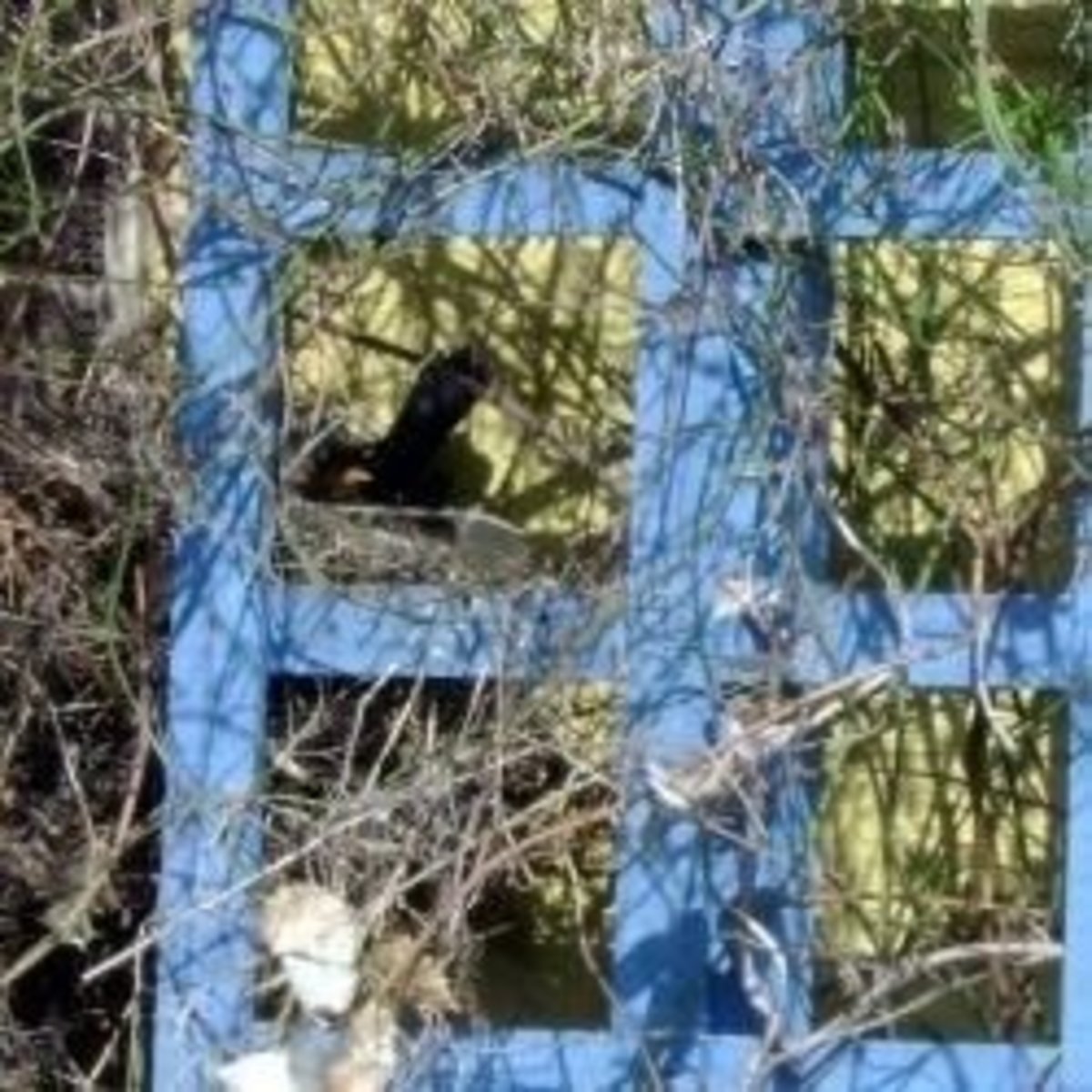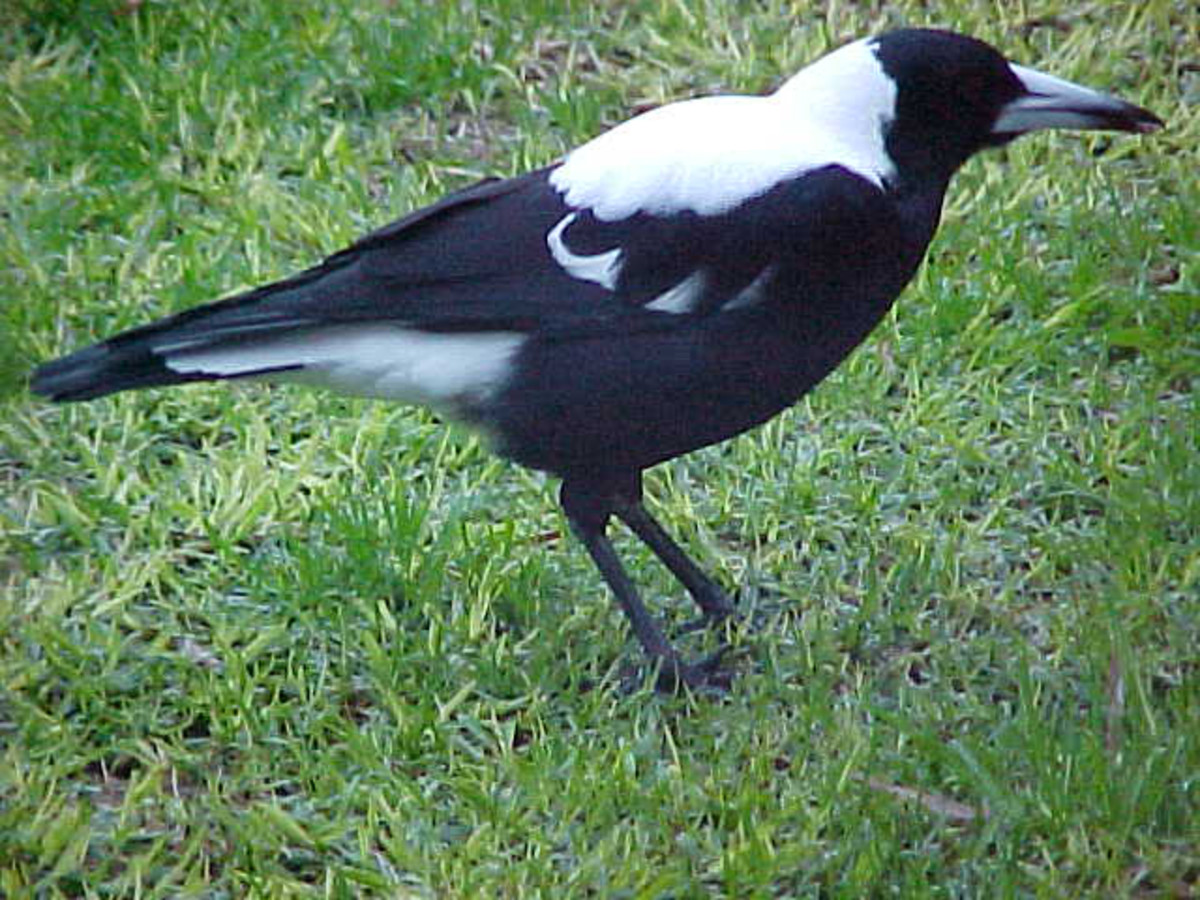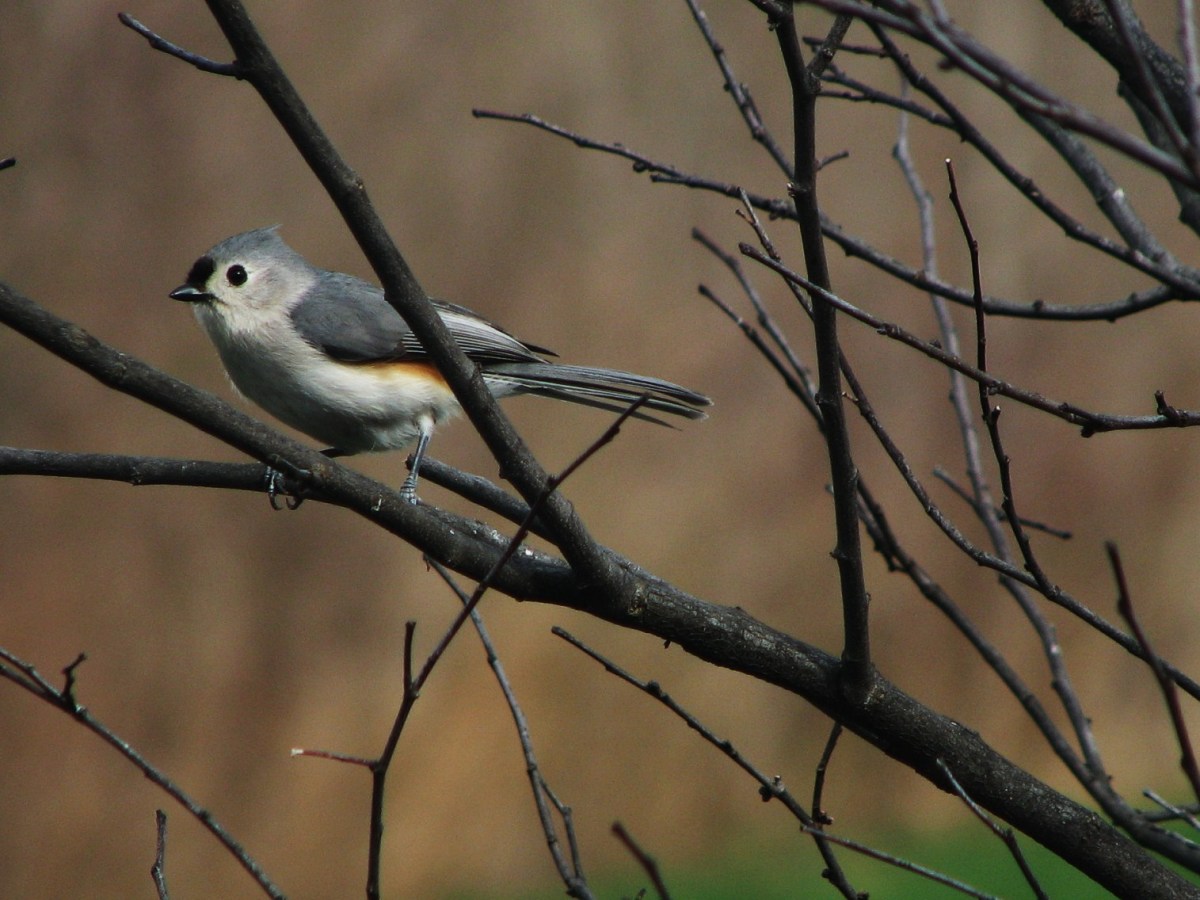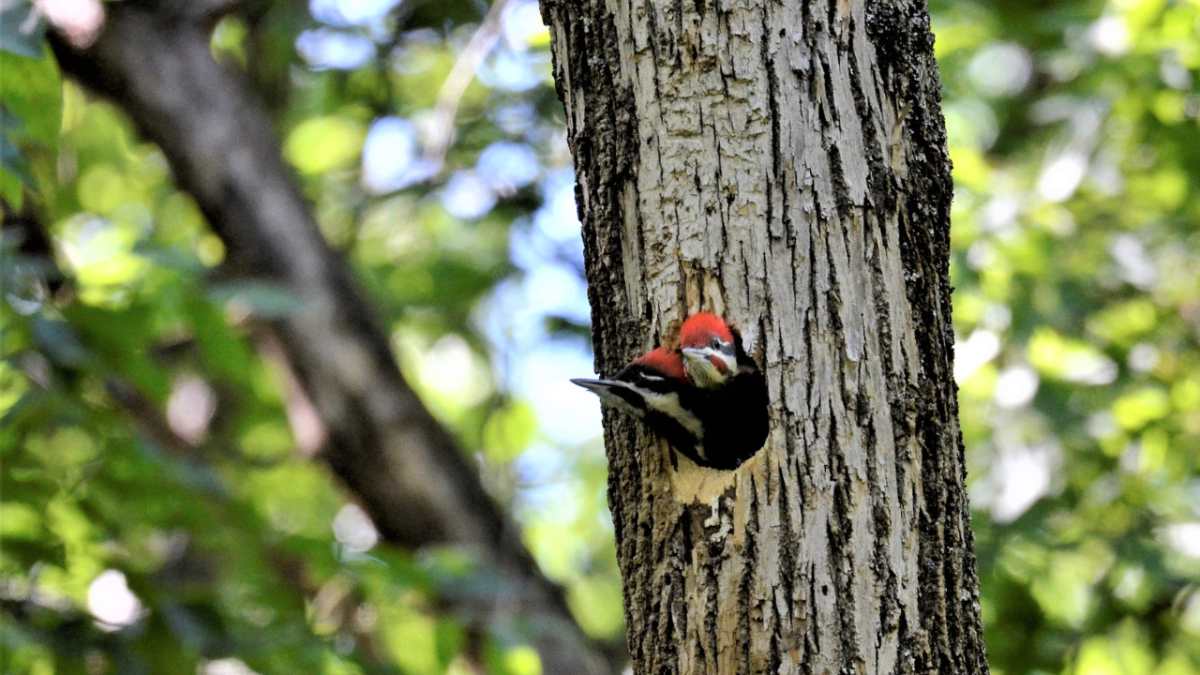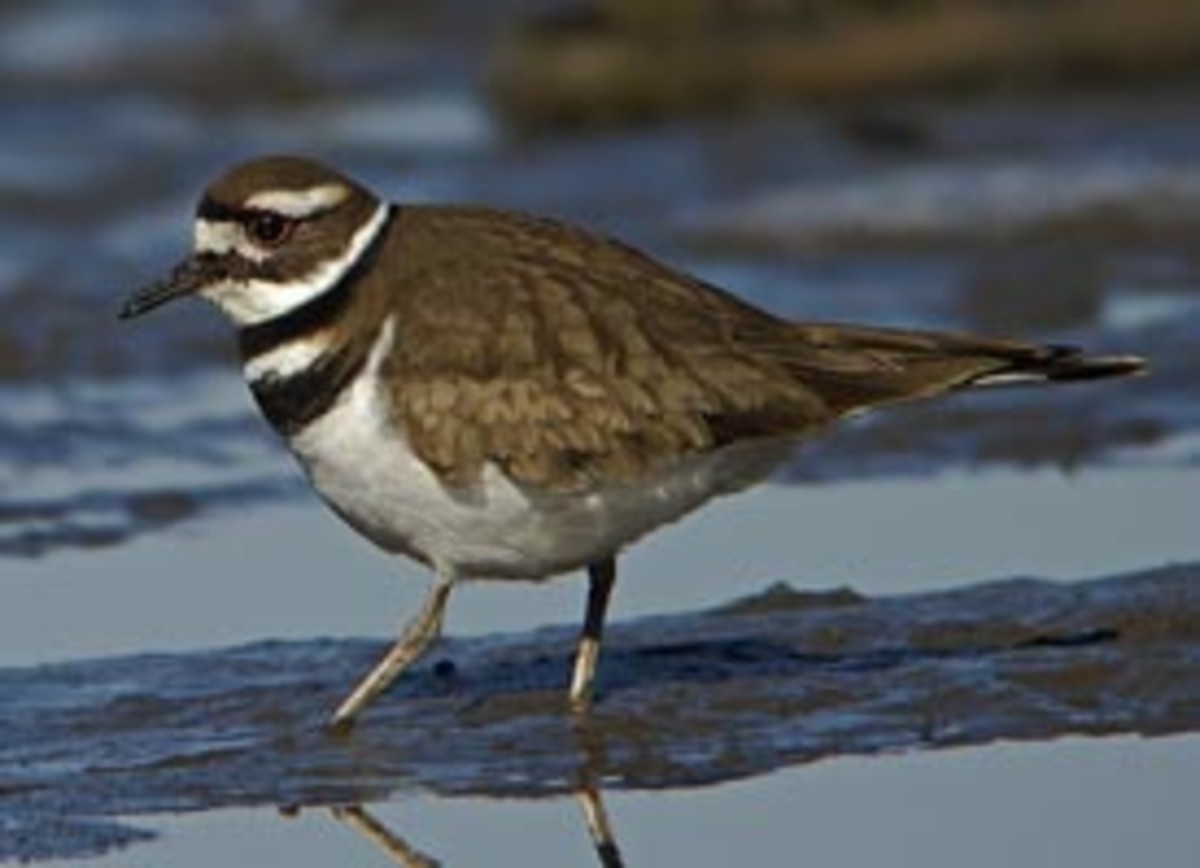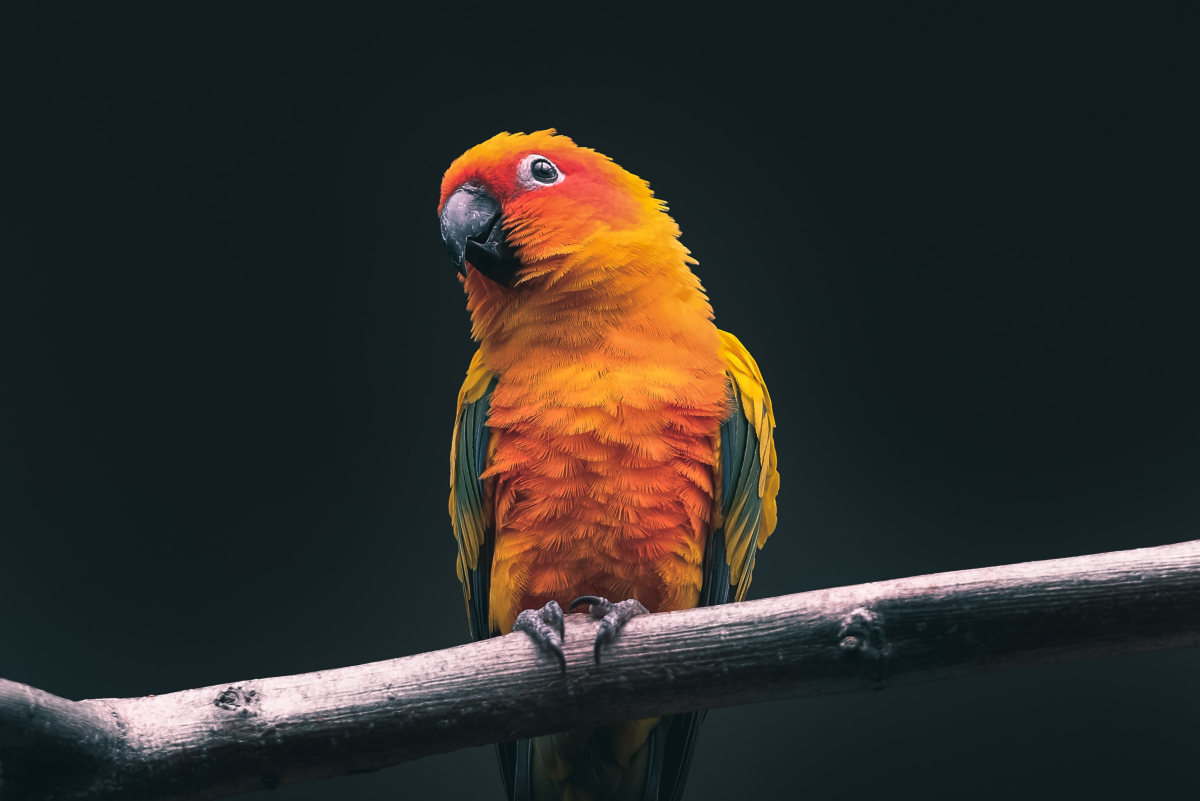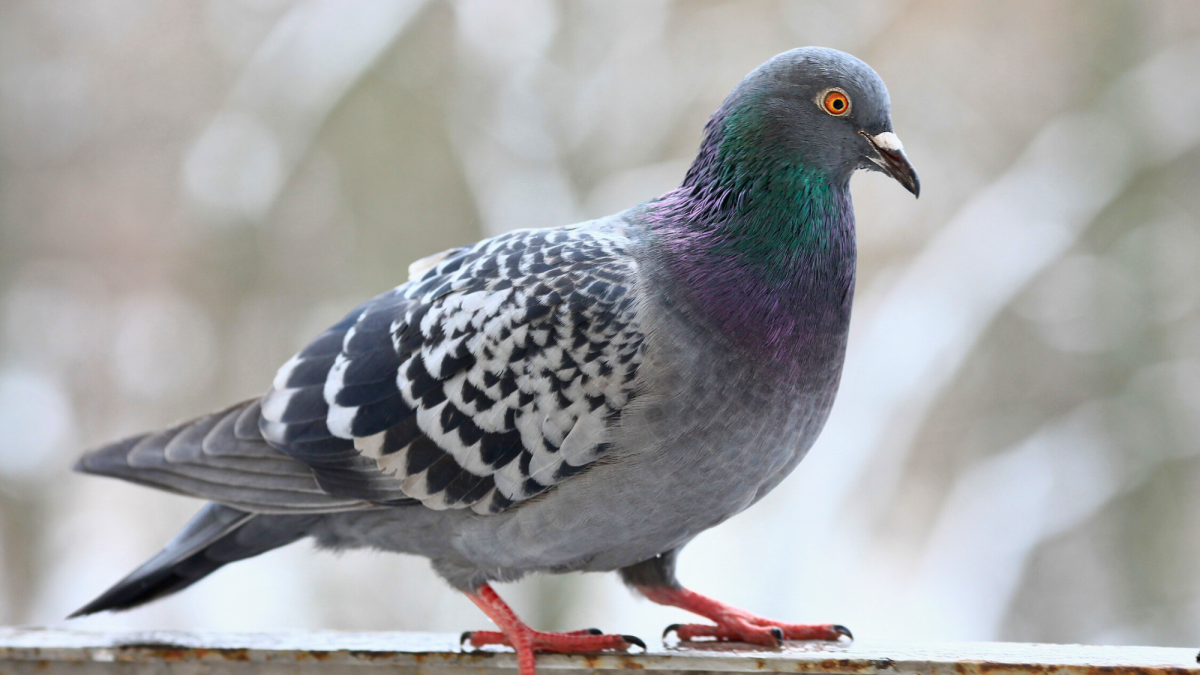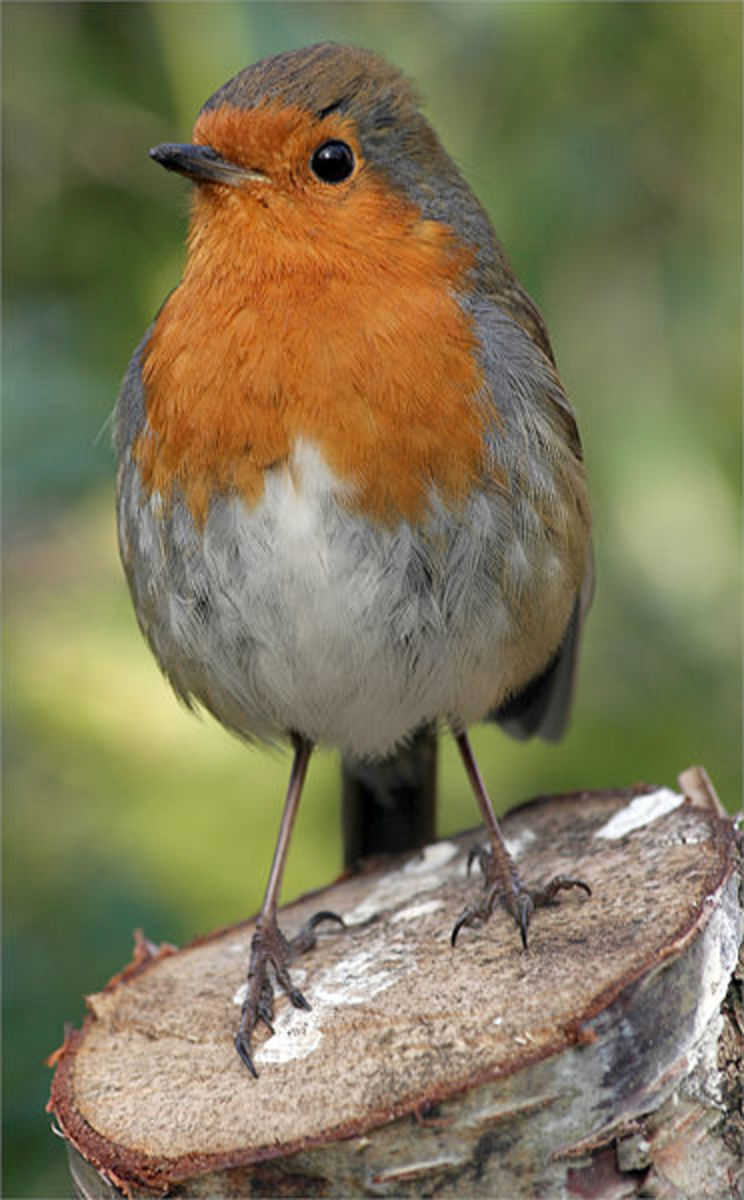The Cuckoo Bird
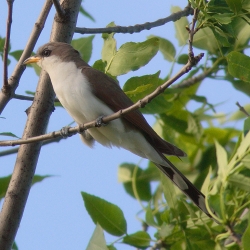
Cuckoo birds are brood parasites
The cuckoo bird is more often heard than seen. The familiar "coo coo" sound is usually associated with the little bird that pops out of the Black Forest cuckoo clock to call out the time. But there is more to the cuckoo bird that meets the eye. It is a brood parasite. It does not make its own nest and lays its eggs in the nests of other bird species. The responsibility of parental care lies solely on the unsuspecting foster parent who will incubate and hatch the egg and raise it as its own. The young cuckoo chick will instinctively throw out host eggs and other hatchlings to get all the space in the nest and food for itself.
Sounds familiar?
Listen to the call of the cuckoo bird
Not all cuckoos are brood parasites
There are 142 species of cuckoos but only 40 percent are brood parasites. The non-parasitic cuckoos build nests, lay plain white eggs, incubate them, and rear their young as expected of birds. Brood parasites, on the other hand, never learned to build their own nests. They are on the lookout for host nests that have eggs that resemble their own. The cuckoo incubates its egg inside its body for an extra 24 hours to ensure that it will hatch first as soon as it hijacks a nest, eats or throws out the host egg and replaces it with its egg. The cuckoo bird then takes off to repeat the same strategy in another nest. Bad bird behavior does not stop with the mom. The hatchling will toss out any object that touches it in the nest, like eggs and other hatchlings. The unsuspecting foster parent is left with rearing and feeding the cuckoo bird at the expense of losing its own.
Survival of the fittest - How the cuckoo population survives
This video captures what brood parasitism is all about. The female cuckoo raids a nest, eat some of the eggs of the host bird and lays its own eggs in the nest. The poaching female cuckoo bird then takes off and leaves the host bird of the nest to do the mothering duties. Barely 24-hours old, this blind cuckoo chick instinctively knows how to get rid of competition by rolling any remaining host eggs or chicks over the edge of the nest. Here it is using the indentation on its back to heave the egg out of the nest. This way it gets all the worms and food for itself. Somehow, the baby cuckoo chicks manages to fool the host birds to care and nurture them as if they are her own. This may seem to be self-serving but it is nature's way to allow the cuckoo population to thrive at the expense of the host eggs.
Different cuckoos prefer specific bird nests
Females lay eggs with same color and pattern as host eggs
Cuckoo birds are able to mimic the pattern and color of the eggs of the host nests they are victimizing. This way, the egg can just be dropped into an unattended nest and blend in with the other clutch of eggs. The unsuspecting foster mom will not know any better even if the egg is larger than the rest. How is it possible that the host mother cannot recognize a foreign egg? This is one of the oddities of nature.
The Common Cuckoo
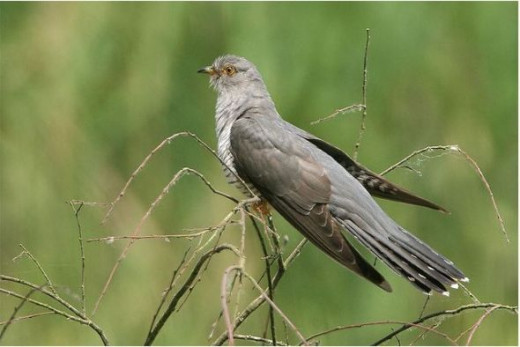
The Common Cuckoo (Cuculus canorus) formerly known as the European cuckoo is a brood parasite that prefers to lay its eggs in the nest of smaller birds, like the Eurasian Reed Warblers, Dunnocks and Meadow Pipits. Its choice of nest is based on the color of the host eggs which matches her own. It replaces one host egg with one of her own and lays 4 or 5 eggs more at 48-hr intervals each in a different nest.
The Common cuckoo's name comes from its plaintive two-note call of "coo-coo" immortalized in the well-reknowned German Black Forest cuckoo clocks.
Great Spotted cuckoo
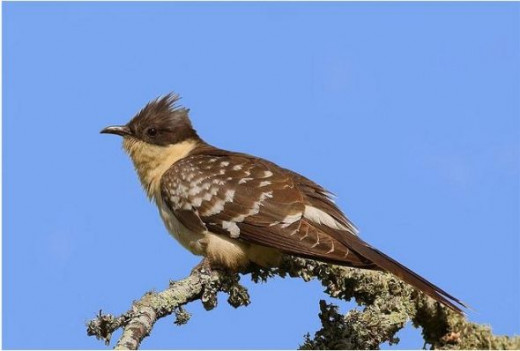
The Great Spotted Cuckoo (Clamator glandarius) lays its eggs in the nests of starlings and magpies but unlike the Common cuckoo, it does not throw out the host eggs. However, the young magpies usually starve to death as the cuckoo chicks usually monopolize the food. In the summer, the spotted cuckoo migrates to the warm open country of southwest Europe and western Asia and winters in Africa.
Pallid Cuckoo
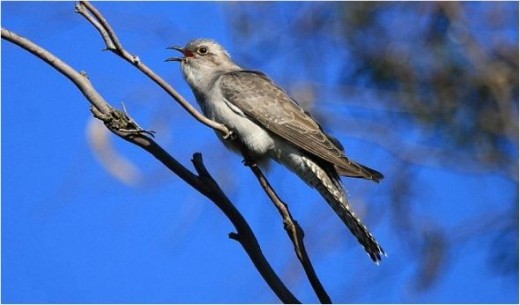
The Pallid Cuckoo (Cucullus pallidus) lays its eggs in the nest of honeyeaters, woodswallows, whistlers, and flycathers. Its eggs usually resembles those of the host eggs and the unsuspecting host will incubate and hatch the eggs along with its own.
Sneakiest bird
Parenting Tips from Cuckoo Birds
Cuckoo chick ejects host egg and hatchling out of nest
This video is heartbreaking to watch.
A Bronze Cuckoo bird growing up in a Golden-bellied Gerygone's nest.
Little foster moms raising and feeding over-sized kids
Full-time babysitters for baby hueys
These photos show host moms feeding a variety of cuckoo chicks who have outgrown them. Since the cuckoo chicks grow in leaps and bounds, the job of feeding these voracious interlopers is a daunting task. This is comical, yet so tragic.
Tiny Willow warbler feeds large baby cuckoo bird
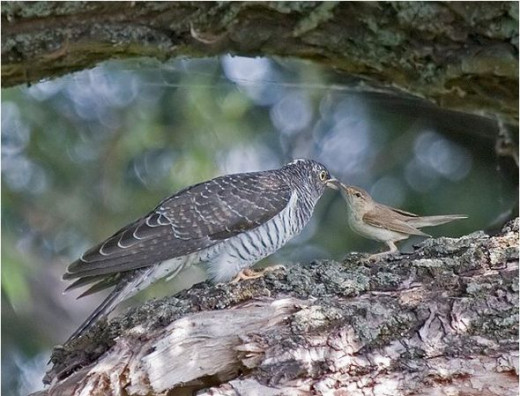
This Common Cuckoo fledgling is at least four times the size of the little Willow Warbler foster mom. The warbler does not seem to mind feeding this monster kid. This is mother's instinct at its best.
Young Pallid Cuckoo being fed by little honeyeater mom - What nature lacks, nature also provides
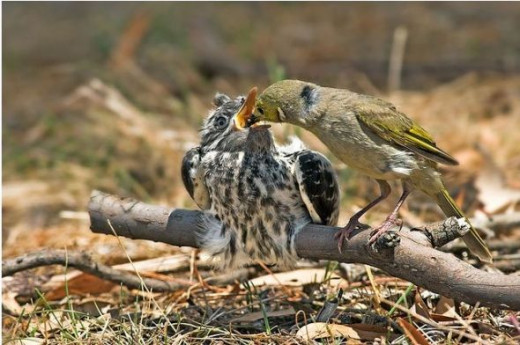
A Yellow-plumed Honeyeater (Lichenostomus ornatus) is feeding this growing Pallid cuckoo chick who doubled its size in 5 days. Pallid cuckoos have a liking for hairy caterpillars and larvae of other insects.
Outgrown the nest of foster mom - Cuckoo chick barely fits in nest
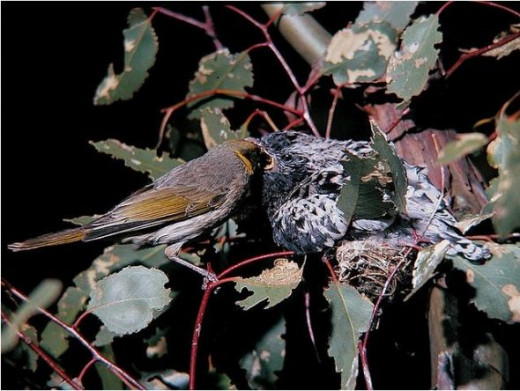
This picture says it all! The over-sized Pallid cuckoo is still squatting in the Yellow Plumed Honeyeater's nest and being fed by the dedicated little foster mom. Since the honeyeater mother is small and can only fetch so many insects at a time, she will have to make several trips to satisfy the hunger pangs of the Pallid cuckoo chick.
Did you know...
A group of cuckoos are collectively known as a "cooch" and an "asylum" of cuckoos.
Interesting links about nature's con artists.
- Brood Parasitism
Birds are well known for their parental care, however brood parasites like cuckoo birds do not provide any parental care for their own offspring. Care that the "hosts" provide to the young parasites is care denied to their own young. - It works for Cowbirds
Brood Parasites:A unique breeding strategy. - Cuckoo! Cuckoo! - NYTimes.com
The behavior of 'brood parasites' like the cuckoo show us how organisms' sensory systems interact with the world. - Cuckoos evolve to fool angry birds
(PhysOrg.com) -- Australian cuckoo birds have taken a new evolutionary step - mimicking the color of their host young to avoid certain death, according to a study by researchers from The Australian National University. - Study: Cuckoos Mimic Sparrow Hawks To Hijack Host Bird Nests | Global Animal
(WILDLIFE) Many birds and animals imitate predators for self defense, but only the cuckoo bird masquerades as a hawk in a scheme to fool other birds into free babysitting. Read about this and other cuckoo schemes. - Global Animal - Living Library | Cuckoos - Noisy Deceivers | Article in Birds
Wildwatch.com has a number of articles and book reviews on birds and birdwatching in Africa, written by passionate ornithologists. You will also find field guides, handbooks and much more in this unique library about the birds of Africa.
Cuckoo is slang for a foolish or crazy person.
Cuckoo is slang for a foolish or crazy person.
Take a quick poll about the cuckoo bird
Given that the mother cuckoo bird does not build its own nest, drops off its egg in another bird's nest, eats the host eggs and even throws out the other chicks out of the nest, and let the foster parent rear its chick-
What is your impression of the cuckoo bird now?
Symbol of unfaithfulness
Cuckold is derived from the Old French for the cuckoo, coucou, alluding to the parasitic bird laying its eggs in the nest of other birds.
Fun cuckoo bird products for you
Mechanical or battery-operated cuckoo clocks
The plaintive sound of the two-note cuckoo bird call is immortalized in all cuckoo clocks, whether these are mechanical or battery-operated. The quartz-driven modern day clocks have digital recordings of the cuckoo calls.
River City Clocks Quartz Cuckoo Clock
Painted Chalet with Dancers
Wesminster Chime or Cuckoo Sound
7 Inches Tall
Model # 83-07QPT
Cuckoo Clock Black Forest house with moving beer drinkers and mill wheel
Black Forest Clock with cuckoo, turning dancers, incl. batterie
Quartz Black Forest Cuckoo Clocks
QUARTZ CUCKOO CLOCK
Parasitic Birds and Their Hosts:
Studies in Coevolution
(Oxford Ornithology Series)
The Avian Brood Parasites:
Deception at the Nest
Parasitism and Host Behaviour
Say Goodbye to the Cuckoo:
Migratory Birds and the Impending Ecological Catastrophe
The Cuckoos
(Bird Families of the World)
Cuckoos, Cowbirds and Other Cheats
Handbook of the Birds of the World, Vol. 10:
Cuckoo-Shrikes to Thrushes
The Nesting Season:
Cuckoos, Cuckolds, and the Invention of Monogamy
Let's hear it from you. - Nature versus nurturing
Brood parasites like cuckoo birds and cowbirds pawn off the responsibility of rearing their young to the host parents. Why is the foster parent so accepting of the imposter at the cost of her own hatchlings? Why is the biological parent off the hook so easily. Is this nature's way of saying only the fittest survive?
Is parentage important considering a different bird specie raised the cuckoo chick?



